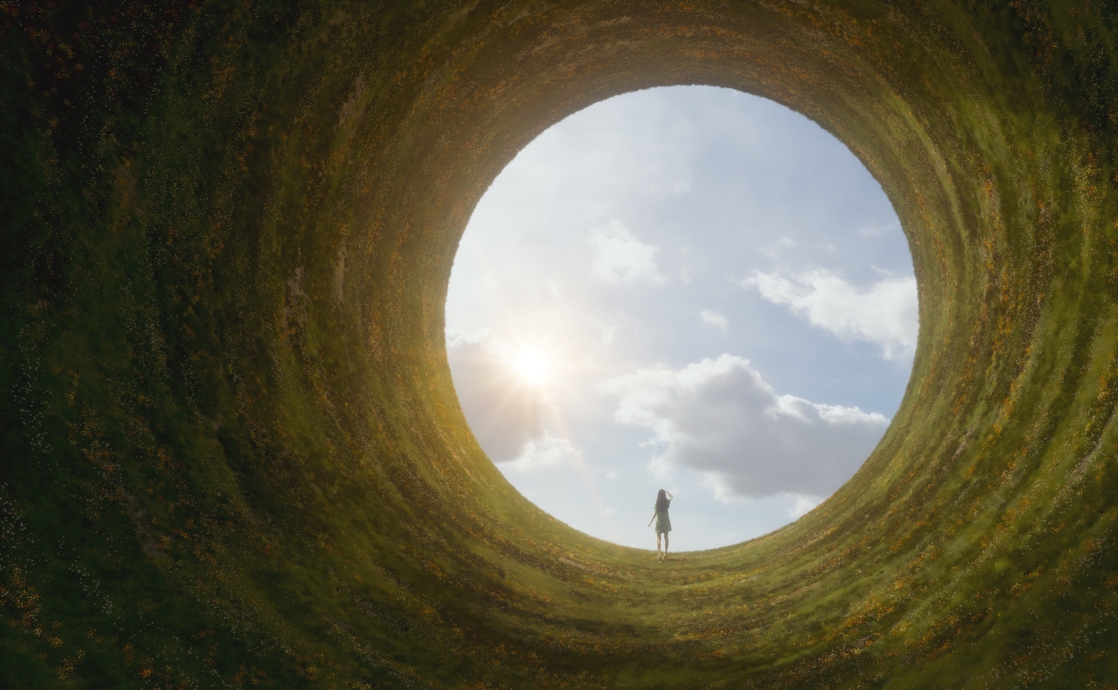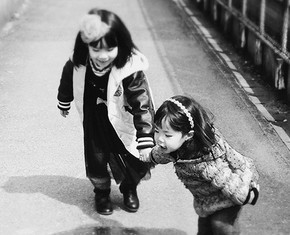The views expressed in our content reflect individual perspectives and do not represent the authoritative views of the Baha'i Faith.
The discoveries anthropologists and archaeologists have made conclusively prove that the earliest members of our species, good old Homo Sapiens, often buried their dead with care and consideration.
How do we know? Well, thousands of unearthed burial sites in places all around the world included food, weapons, and personal belongings with the bodies of the deceased.
Tombs, graves, burial mounds, pyramids, and funerary structures in every known ancient culture interred the honored dead with the clear intent of providing them with the symbolic provisions necessary for their journey to the next world.
RELATED: What Will We Carry Into the Afterlife?
We’ve learned that even Neanderthals — once thought of as savage sub-humans but no longer considered that way because of their burial practices — interred stone implements, food, and decorative shells and bones in the graves of their deceased. Encyclopedia.com explains:
Since there are no written scriptures describing the purpose of including such funerary objects in the graves (writing was not developed until the fourth millennium b.c.e.), one must presume the placement of weapons, food, and other utilitarian items beside the dead indicates that these prehistoric people believed that death was not the end. The member of the tribe or clan who was no longer among the living still required nourishment, clothing, and protection to journey safely in another kind of existence beyond the grave. Somehow, there was some part of the person that survived death.
Clearly, long, long before any of the world’s known religions came into being, our ancient ancestors believed in a continuing life beyond this physical world — as do the vast majority of their descendants in the world’s Indigenous tribal societies.
This should tell us something.
Contrary to the contemporary idea that belief in an afterlife is an irrational relic of religion, these scientific discoveries should tell us that people have always believed some part of us survives death — and one day, as the Baha’i teachings say, each of us will stand in the presence of our Maker to account for our deeds:
Erelong shall your days pass away, as shall pass away the days of those who now, with flagrant pride, vaunt themselves over their neighbour. Soon shall ye be gathered together in the presence of God, and shall be asked of your doings, and shall be repaid for what your hands have wrought …
This is a universal spiritual teaching — that all the seeds and deeds we sow in this world will have their harvest in the next.
Regardless of whether you believe in an afterlife or not, it makes sense to behave well while you’re here in this material world — to love and help others, to work for the unity of humanity, and to acquire spiritual characteristics and attributes. Living that way is a win-win equation. If there is an afterlife, and you devote your life to doing good while you live in this one, you’ll reap the eternal rewards. If there is no afterlife, and this life ends with the death of the body, then your good deeds will serve as their own reward in the here and now, helping others and making the world a better place.
That’s the premise of Pascal’s Wager and also the premise of every Faith, including the Baha’i Faith. The Bab, the herald and precursor of Baha’u’llah, wrote:
This mortal life is sure to perish; its pleasures are bound to fade away and erelong ye shall return unto God, distressed with pangs of remorse, for presently ye shall be roused from your slumber, and ye shall soon find yourselves in the presence of God and will be asked of your doings.
Each one of the major world religions teaches this truth: how a person conducts themselves while living on Earth will greatly influence that soul’s ultimate destiny. Baha’u’llah, in his mystical book The Hidden Words, explained it this way:
O Son of Being! Bring thyself to account each day ere thou art summoned to a reckoning; for death, unheralded, shall come upon thee and thou shalt be called to give account for thy deeds.
RELATED: How to Pack for the Afterlife: Seven Steps to Eternity
All of this reassures us that death is not the end. The Baha’i teachings assure everyone that our souls will survive our bodies and go on. As Baha’u’llah’s writings promise, the stuff we’re really made of — not cells and organs but a soul, a conscience, and a sentient mind — will live forever:
… drown thyself in the depths of eternity, that death may not overtake thee, and that thou mayest abide forever in the shadow of the everlasting Face of God. Thereupon shall the fragrance of the All-Glorious be diffused from the realm of the All-Merciful, and thy heart shall grieve no more over the vicissitudes of a fleeting life and the turns of a transient fortune. …
By God, O My friend! Wert thou to attain unto this station, thou wouldst find wondrous worlds; discover heavenly bowers, celestial gardens, and transcendent realms; and unravel the secrets of the progress of the souls of men through the atmosphere of eternal holiness and the heavens of imperishable glory. Thou wouldst so rejoice within thy soul as to cause the signs of joy and gladness to appear throughout the whole earth. Thereafter, sorrow would never again hold sway over thee, nor would grief ever seize thee in its grasp, for thou wouldst abide in the heaven of holiness amidst the concourse of the blissful.
This applies, the Baha’i writings say, to everyone:
Now is the time for joy and gladness, for acquiring the characteristics of the All-Merciful. This transitory world is passing even as a fleeting shadow, and the days of life are speeding by. When finally we hasten from this world to the next, we should do so with a candle in our hand, a brightness in our countenance, and a spirit in our heart. Observe how the exterior is the sign of the interior. All tombs and sepulchres, even of the world’s most celebrated monarchs, are dark and gloomy, whereas the holy resting-places of the chosen ones of the All-Merciful are radiant and luminous. Let us then exert ourselves with heart and soul, and lift up our voices in a gladsome chorus, that we may become acceptable at the Threshold of Oneness; be made alive by the fragrant breaths of holiness; detach ourselves from whatsoever is of the world; become devoted servants at the threshold of Him Who is the Ever-Living, the Self-Subsisting; be made recipients of His infinite bounty, and attain to everlasting life. Upon you be salutation and praise.
You May Also Like
Comments

















you’re a deathless soul
you can’t be kept in a dark grave
you’re filled with God’s glow
be happy with your beloved
you can’t find any better
the world will shimmer
because of the diamond you hold
when your heart is immersed
in this blissful love
you can easily endure
any bitter face around
in the absence of malice
there is nothing but
happiness and good times
don’t dwell in sorrow my friend
Translated by Nader Khalili “Rumi, Fountain of Fire”
Cal-Earth Press, 1994